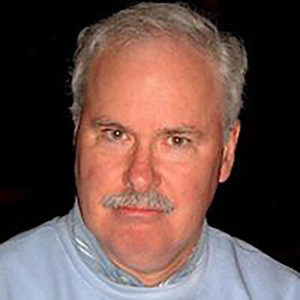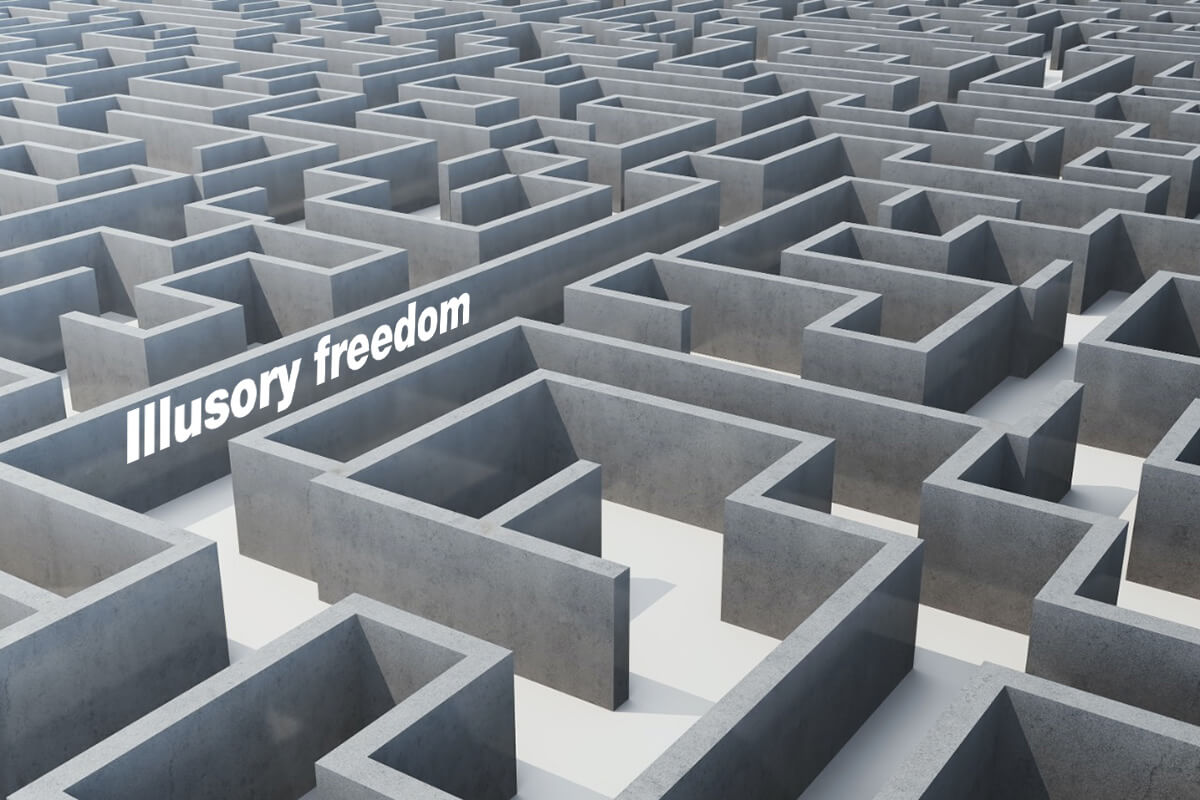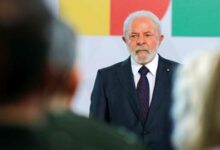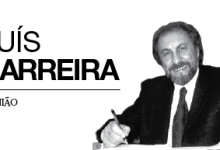Illusory Freedom
When we make a certain choice we assume that we are doing so in the full use of our individual freedom—in whatever area of life that may be. Living in a democracy, it becomes even more important for each of us to affirm that what or whom we choose or support is the result of a considered choice, based on the information we gather. Which is true! But also a lie. The power of persuasion and guidance of one’s choices is increasingly in the hands of others and in politics this fact is all too evident.
Scott Edward Bennett, professor in the Department of Political Science in the Faculty of Public Affairs at Carleton University, helps us understand that, although there have always been political narratives used to raise certain points of view and opinions, nowadays the “offer” is much wider and disseminated through many more platforms, and should even favour a more considered choice, but the truth is, as Bennett explains, that this is often nothing more than an illusion. In fact, citizens have today, as they always had, a limited freedom of choice.
 Milénio Stadium: Do you think that with social networks, information disseminated by the most varied media platforms and others, the concept of individual freedom of choice is distorted? In other words: are we increasingly induced by others to make certain choices, even without us realizing it?
Milénio Stadium: Do you think that with social networks, information disseminated by the most varied media platforms and others, the concept of individual freedom of choice is distorted? In other words: are we increasingly induced by others to make certain choices, even without us realizing it?
Scott Edward Bennett: This is indeed a vast question relating to philosophical issues that have never been resolved to anyone’s complete satisfaction. However, my basic view is that there have always been narratives and sources of information in organized human society, and these are almost always used to press for different points of view and promoting policies and fashions that will provide benefits for some. The selectivity of the benefits is often not clearly described, and biased communications are often put forth as being for the public good or the good of the economy.
What has happened as we moved in and beyond the early stages of mass consumer society is that there are more choices and more sources of information. Depending on their resources, people have many more choices they can make, and they are free in a limited sense to make those choices. However, their freedom is really quite limited because they are overwhelmed with information and choices compared to earlier period of history, and much of the information is very flawed and even biased. What may seem to be a variety of choices is often an illusion, and people have been analyzed with respect to what sort of illusion they will accept.
So, people have always had somewhat limited free choice, but the choice options and related information have become more complex and often confusing. People create overly simplified concepts to deal with this and to create illusion of informed and beneficial choice. Those who have some point of view to sell assist in creating the oversimplifications.
Of course, those who have something to sell will use this complex state of illusions and choice options to their advantage. They might be selling a political party, a car , a service, etc. Very often they will sell their option through seemingly simple means, but often there are concept manipulators hidden in the seemingly simple messages. This is something that certain critics underlined years ago when modern advertising took off (See Vance Packard’s work for example. Looking back on it, he even foresaw the misuse of data and problems with privacy. ). However, it has all become more complex now and based on much more data and information scraped of all sorts of digital transmissions that people are making on a daily basis.
MS: Specifically in the political area, do you think that citizens end up being influenced by political narratives even in their way of living/looking at life?
SEB: Yes, they absolutely do get influenced by political narratives, but this has always taken place. Once a few variables described a person, and they made political choices in terms of those choices. They had few choices, limited information and so forth. Their leaders may have made a bit more information, but nothing very sophisticated or elaborate. Now political and governmental (and corporate) leadership have enormous amounts of information about people. Although it would be more appropriate for ordinary citizens to make more complex choices,they get herded into highly simplified groupings that do not do just to reality and based on vast amounts of data. Yet, the citizen believes they are responding in a sophisticated way. Interestingly, political choices in current times seem to be organized in a manner that is consistent with consumer choices and various belief systems, but the whole arrangement is vast oversimplification of the choice options that should be available to the ordinary person. They should be served by the complexity of choice, but they are unable to deal with it , and it is not in the interest of political and economic institutions to improve this process by helping them deal with it.
As an example, it is interesting to see how public opinion in some countries concerning the pandemic lined up around simplified political and life style divisions. This did not serve the choices of ordinary people very well, and imperfect information was used by all sides to shape the situation. Many books could be written about this.
MS: What danger is there for the socio-political organization if one’s decisions are made more by what others do/say than by one’s own real choice?
SEB: It is the end of democracy as a form of responsible government and any form of meaningful direct representation. However, democracy seldom endures for long in any useful sense. It will also be the end of what little freedom of choice exists in the economic realm broadly defined. However, most people will hardly notice it. They will still think they have a lot of choices without understanding how those choices are being defined for them.
Note that people have always had somewhat limited choice, but now the choices and choice options are manipulated in more complex ways, and there is an illusion of great choice.
“Freedom was always limited but still existent and relevant. Now it is just harder for ordinary people to meaningfully exercise freedom because they are overwhelmed with too many illusory choices…” Scott Edward Bennett • Department of Political Science Faculty of Public Affairs, Carleton University
MS: Can we say that, in some way, politicians themselves are hamstrung in their decisions? Whether by economic, social or even career advancement interests?
SEB: They have certainly always been affected by the importance of their own careers. Now, they must pursue those careers in a manner which is constrained by participation in various media , social media and advertising rituals. They are also constrained by a variety of commonly accepted myths in the social and economic realms.
MS: To what extent do the media and social media platforms induce politicians to be more active in shaping public opinion in the direction that is most convenient for them?
SEB: This has always been a part of political life. The problem now is the politicians have, for the most part, accepted the idea that they must play within the rules of certain media, data and information systems. In many political systems, this has blurred the lines between politics and entertainment. Indeed, in some contexts, the divisions among politics , entertainment and ordinary advertising have become indistinct. In some cases, politicians would do better to separate themselves from the world of media and social media and make their communication with the public on a more specialized channel. If politics remains just another aspect of entertainment in a society that has lost track of prudent behavior, the possibility of any beneficial change is small.
MS: Do you think there is a way to recover our individual freedom or do you think that, in fact, we have never lost it?
SEB: Freedom was always limited but still existent and relevant. Now it is just harder for ordinary people to meaningfully exercise freedom because they are overwhelmed with too many illusory choices and influenced by too many sources of information of very mixed quality. They are subtly encouraged to put concern with government on the same level as some sort of consumer purchase with comparatively poor options. Just one minor decision among a sea of decisions, and what difference would it really make? I am personally not optimistic about the future of responsible government or economic life in this country and a number of other countries. However, some possible but likely unattractive drivers for change which might offer some hope are:
There are some professional organizations that are trying to improve the quality and transparency of data and its use. However, they face many obstacles in existing organizational structures and in their ability to capture what is relevant to different classes of people.
Ordinary citizens could be better educated about what government does at different levels and how it has changed. However, it is difficult to turn this over to any standard educational program because there are biases in many of those programs in many places.
The public also needs to be better educated about the implications of increased public and private indebtedness and to be encouraged to value prudent decision making. Here, the obstacle is that fanciful theories are always being invented to prop up the consumer economy based on debt and its supposed virtues for the private and public realms.
In some countries, not Canada, there have been movements to change the nature of political and governmental careers so that seeking and holding office is not seen as a lifetime pursuit and a permanent career. This could change the current tendency of politicians to become entertainers or cause oriented celebrities.
Despite what I have said about too much choice in the consumer economy and society, I have also said that choice in some areas can be oversimplified into too few options. People might take politics and related information more seriously if they had more choices they could relate to. However, this would require massive changes in the party system, and the changes would have to take place across the political spectrum.









Redes Sociais - Comentários